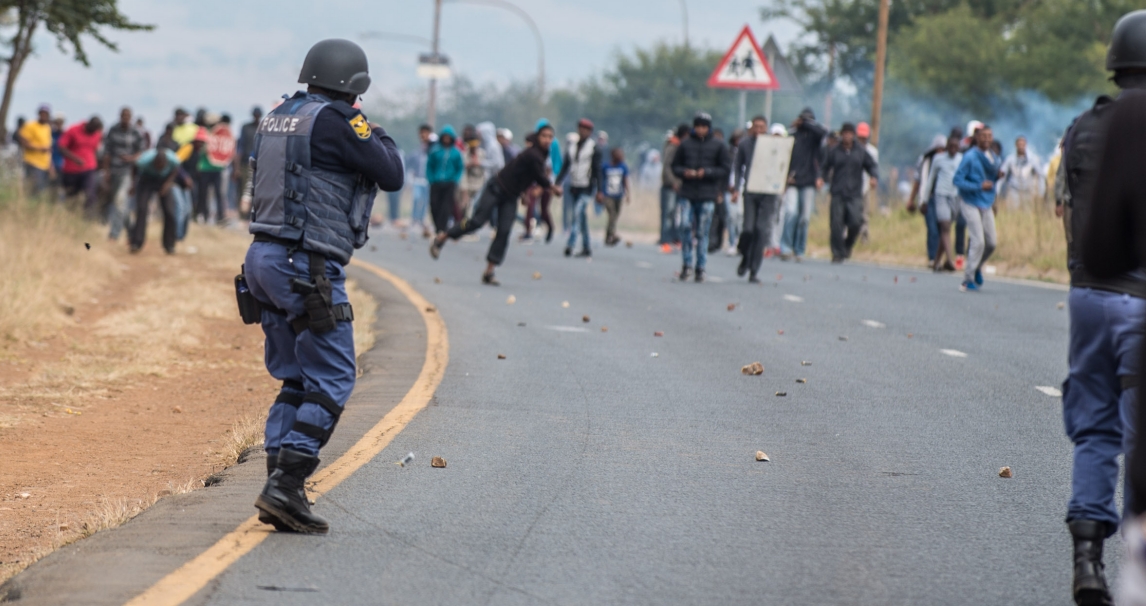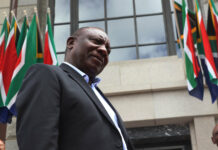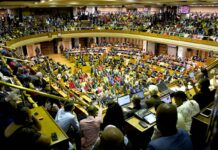South Africa could be entering a new era of protest. This is according to Karen Heese of Municipal IQ, an online database that monitors and assesses the country’s 278 municipalities “We are facing, in all likelihood, a period of more service delivery protests, with police struggling to cope with them and with government leaders struggling to find legitimacy in quelling them.â€
In recent weeks, there have been several violent and protracted protests around the country, from Vuwani, in Limpopo, where residents have protested against being moved to a different municipality, to Coligny, in the North West, where protests broke out after a 16-year-old boy was allegedly killed by farmers.
In Gauteng this week, protest spread through the south Johannesburg communities of Freedom Park, Eldorado Park, Ennerdale, Orange Farm and now Iterileng.
Residents are demanding better service delivery – particularly for housing and water provision – and jobs. The protests have also been marked by stone-throwing, looting and the burning of property.
But despite the recent high levels of protest action in Gauteng, the North West, and Limpopo, Heese says there has actually been an overall lull in service delivery protests countrywide. Municipal IQ has recorded 48 service delivery protests in the period up to the end of April, compared to approximately 70 protests over the same period last year.
The nature of protest in South Africa
Johan Burger, a researcher at the Institute for Security Studies (ISS), said communities are increasingly using protest as a way to communicate their demands.
“We’ve seen this in Vuwani, where people were protesting about their request to be part of a particular municipality. The government is not listening to that, and they resorted to violence and destruction as a means of putting pressure to the government,†he said.
Gareth Newham, head of the governance, crime and justice division at the ISS, echoed this sentiment. “The best way to prevent violent protests is to ensure that you have ward councillors, who are actively representing their constituencies at local government level,†he said.
Heese concurred, saying protests often break out when communities feel frustrated and ignored by government officials. This was seen recently in Vuwani, where community members waited almost five hours for President Jacob Zuma to address them, before being told that he would not appear, without any further explanation.
“Good communication before violence is reached, before things escalate, needs to play a role,†she said. Heese also said better mediation between community leaders and provincial MECs were necessary would also help prevent violent protests from breaking out.
Good policing is also crucial to preventing violence. “Part of that is police being well-trained: knowing how to deal with crowds, not just shooting rubber bullets automatically,†said Heese. Another element is encouraging organised protests, with specific programmes and an expectation of high levels of discipline.
Professor Peter Alexander, director at the Centre for Social Change at the University of Johannesburg, meanwhile, has cautioned against seeing disruptive protests as violent. “The term violent can be seen as derogatory [and] the people that are involved in protests are not necessarily violent; they usually respond to police violence,†he said. Instead, researchers often refer to protests as orderly and disorderly; some disorderly protests are also disruptive protests.
“Usually, people don’t even see themselves as violent,†said Alexander. “They just see themselves as blocking roads, and so forth … People’s grievances about service delivery are genuine. Services are not being delivered. The easiest way to avoid such protests is to provide the services, that people feel are quite rightly due to them.
Reporting by Ndapwa Alweendo and Mihlali Ntsabo









